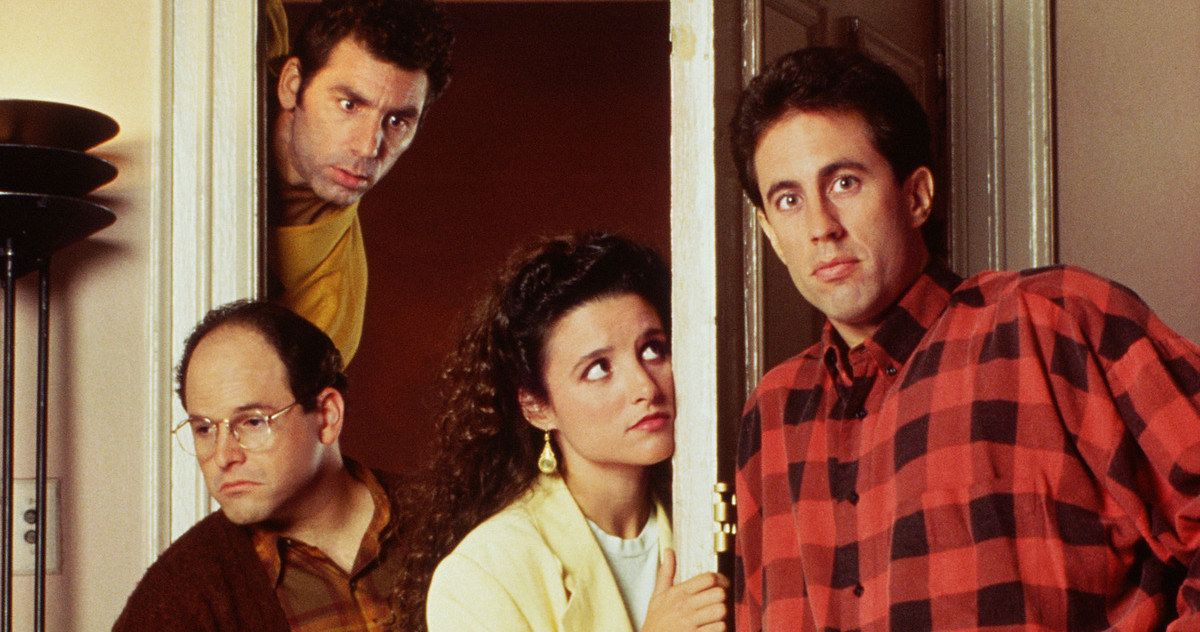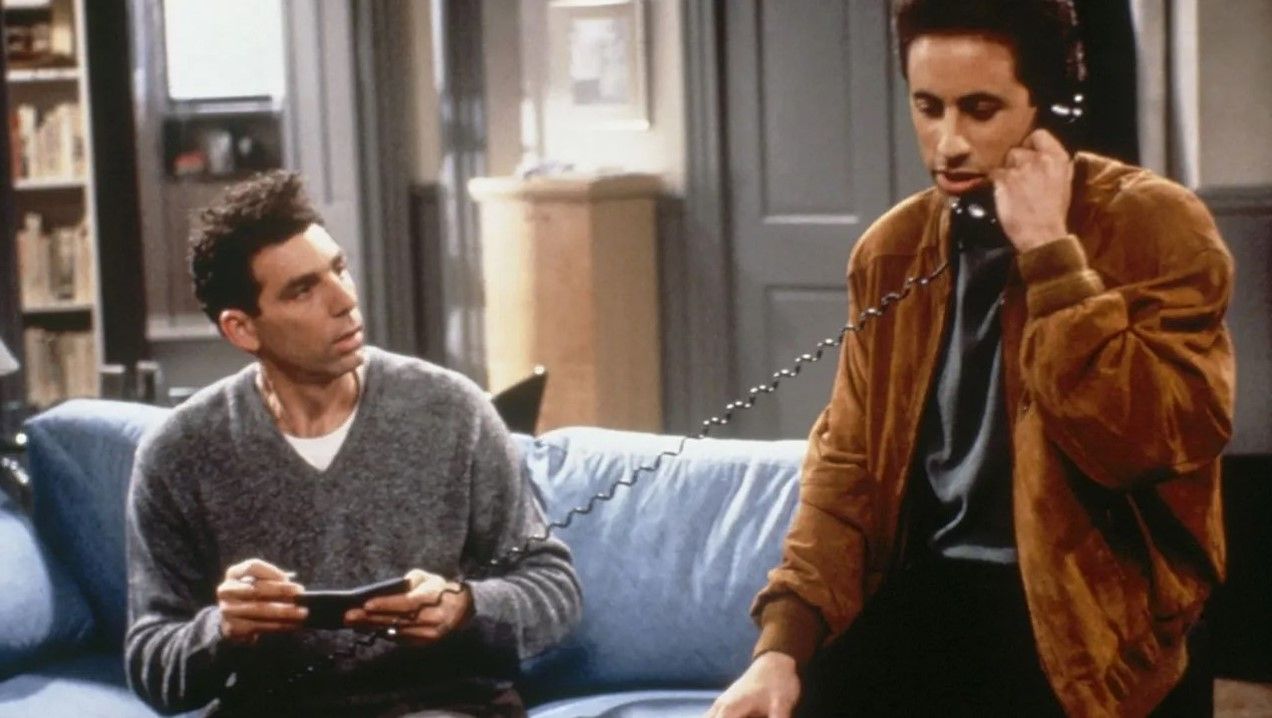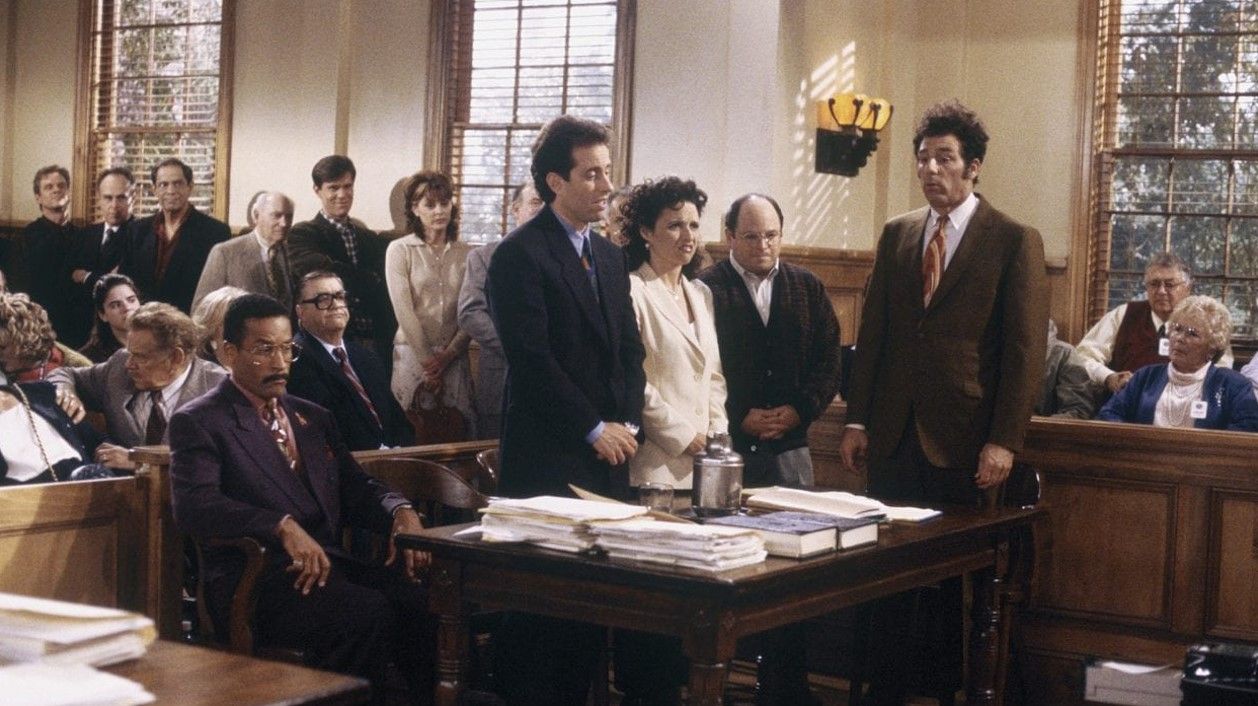Primarily regarded as the greatest and most influential sitcom of all time, Larry David and Jerry Seinfeld's hit television series Seinfeld depicts the everyday life of the rising comedian with his closest friends George Costanza (Jason Alexander), Elaine Benes (Julia Louis-Dreyfus), and Cosmo Kramer (Michael Richards) as they attempt to navigate living in the eccentric world of New York City. The art behind Seinfeld that changed the scope of television interconnects timing and the translation of its subject matters onscreen. The truth is, sitcoms that are both hilarious and easily relatable to viewers can land more effectively than immersing them into a world opposite to their everyday norms.
First airing in the late 1980s (1989, to be exact), the era in which Seinfeld was cultivated in is heavily said to have been produced ahead of its time. The show is mainly known for pushing boundaries in its subject matters, sometimes honing in on issues related to immigration, race, and intimate topics that have not been reflected on television shows prior due to its fear of adverse reactions on mainstream television. Now available on various streaming networks, more recently the show's syndication release through Netflix, newer generations have continued the Seinfeld legacy by consuming its binge-worthy content.
The simplicity in its storylines (that derive from real experiences) is what allows fans to draw into the series so quickly, invoking an immediate reaction. Also, the characters on the show possess unconventional and sometimes off-the-wall personalities, brilliantly written and acted out throughout the duration of the series remarkable and innovative nine seasons. Although Jerry Seinfeld has been extremely vocal about his disinterest in a possible revival of his beloved sitcom, here is why fans would love to see a where-are-they-now-styled update from Jerry, George, Elaine, and Kramer, from the modern-day perspective that is.
How the Friends Would Adapt in the 21st Century
Running from 1989 to 1998, the element of American popular culture is increasingly incorporated through Seinfeld. Most commonly through its phrases "Yada, yada, yada" (referring to boring and repetitive talk) and "Not that there's anything wrong with that" (most notable in The Outing Episode where a college reporter runs a story that Jerry and George are longtime intimate companions).
In The Merv Griffin Show episode, as Kramer is looking around in a dumpster (which poses critical questions in itself as to why he would be looking through a dumpster, but then again, it is Kramer we are talking about), he finds the old set from The Merv Griffin Show, now discarded. Kramer puts together the pieces in his apartment and pretends the show is still on the air, with him as its host. The references to Merv Griffin and his series were partly due to the heightened popularity it received, from Merv's ability to connect with his audience members and guests while incorporating light-hearted humor.
What would be interesting to figure out is how Jerry, George, Elaine, and Kramer would adapt to the 21st century, filled with over-the-top technologies, a substantial plethora of cultures, and societal issues that plague everyday life. Would Jerry make fun of the cancel culture concept, would Kramer have a Bumble profile, does Elaine build her own business empire in this era around female empowerment, and George, well, George is another story.
What Has Happened Since We Last Saw the Group
In the two-part series finale, titled The Finale, we see that the group is arrested on the violation of a good sarmatian law for failing to provide assistance to a carjacking victim while landing in Massachusetts on a private plane. After conducting a trial, the jury finds Jerry, George, Elaine, and Kramer guilty of criminal indifference, ending with the judge sentencing them each to a year in prison. The final scene of the series displays Jerry in the middle of conducting a stand-up set while in prison.
It would be very interesting to see how the gang has been since their time in the slammer, as well as if they even completed the remainder of their sentence in the first place. Did Kramer ironically manage to bail the group out by pretending to be an officer of the law, or (if the release had never occurred) has being confined in prison taken a toll on any of their mental states?
It's a fact that Seinfeld is primarily based around comedy, but additionally, shedding light on the rehabilitation aspect could be insightful, especially for those who have gone through it. Also, another question could be tied to if Jerry, George, Elaine, and Kramer are even friends anymore post the conviction. After being released, everyone could blame the other for their predicament, harboring resentment.



